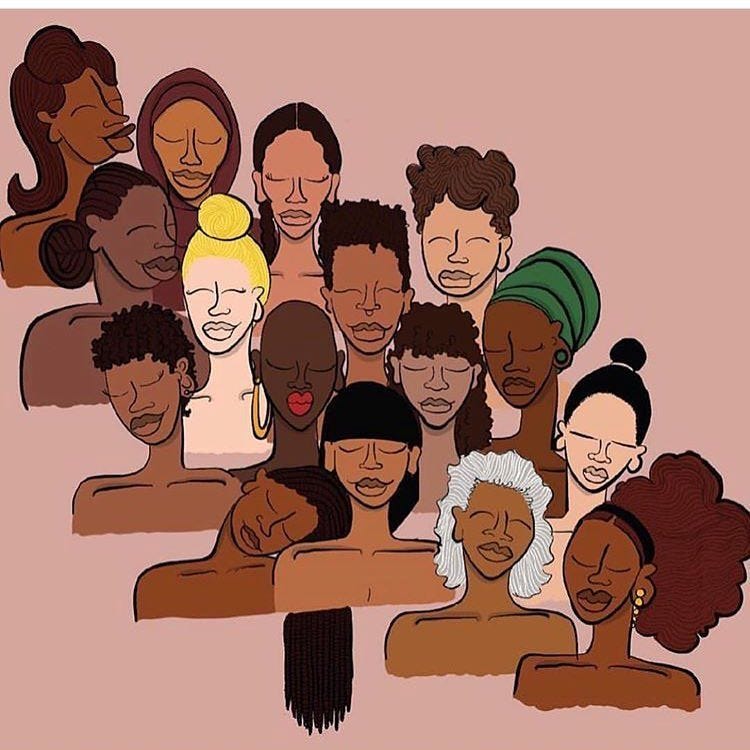These are stories from the trenches, so to speak. The point in sharing these stories is that we don’t all start out at the same place. Some women have to walk a longer journey to get to a place where other women start out. Each of our paths are so personal and part of our individual journey that we have to remember not to compare ourselves to others.
Our leadership presence can be an interaction between our biological dispositions and our contextual factors such as family, culture, society, and economic or social status. We evolve with the experience of our world from our personal values, beliefs, and capabilities. Hence, we need to know and understand the ‘whole person’.
Think of an iceberg with its deep roots beneath the surface of the water. Yet we only see the beauty that is above the water.
These are some women I have met as a coach. All names are as fake as some politicians believe racism or global warming to be. Some stories are merged out of respect to the fellow human.
I work with senior executives and entrepreneurs as a coach on self-awareness and leadership presence- hence my access to these women with resilience. I come out of coaching sessions better than I go in- so I am the learning from these amazing women.
Clara Gracia from Mexico
Clara Garcia is a Mexico and U.S. based executive consultant for the oil and gas industry. She has a registered company in Houston, Texas, pays U.S. taxes, yet every time she travels through the U.S. border she is pulled out of the immigration line and subjected to a secondary search level which always involves extensive questions about her business and personal life. An extremely accomplished businesswoman, she admitted that this treatment has begun to have an effect on her confidence.
Mexico is an extremely patriarchal society and traditional views on women in the workplace are slow to change says Clara. Clara remembers her father telling her when she was very young,
“You’re too intelligent to be a woman.”
In spite of this lack of encouragement, she has risen to the top of her field and commands respect in her industry. However, she still contends with archaic attitudes towards women in the workplace. Like the time she walked into a meeting her boss was running and there were no seats left. He said in front of the group, “Come and sit on my lap!” and she had to maintain her composure as everyone in the room laughed. Or another time she came into a meeting with her boss and another male colleague. The boss quipped, “Oh, she’s come to bring us coffee.”
Clara is a woman who is working to change the patriarchal system from within while at the same time dealing with the changing political environments she has to travel between, which makes her struggle with her presence multi-faceted. She must continually evolve to fit the circumstances.
Her struggle is ongoing- She is rock solid. Taking one insult, aggression and invalidation as an opportunity to change the system.

Alka Khanna from India
Alka Khanna is a busy, accomplished leader who heads two business units for her husband’s family-run top FMCG establishment in India. She began her career without the formal education normally required for the management role she is now in. An important task for her was to establish herself worthy of her role, not only to her family but also to her colleagues. She needed to ensure there was no whiff of nepotism, but that she was more than formally qualified. Even though Alka didn’t reach her position through conventional job promotion avenues, she always felt she needed to prove she was worthy of her stature in the company.
Alka has she established authority by gradually turning two loss-making units profitable and simultaneously she completed MBA in finance and a PhD in marketing.
Though Alka is an established executive with an impressive track record, she still struggles with a constant need for validation. She always felt she is only as good as her last success. All the significant pressure and anxiety manifested in her disposition — a restless and a self-critical person. Her unsettled body posture and wordy, animated conversation belied her attempts at a confident exterior. She has finally learning to own her own capabilities.
She has found her place at the table without losing herself in the process by experimenting with asking for what she needs, listening, showing up, and speaking up. Instead of grandiose moments, she looks for small wins.
Karabo Mahlangu from South Africa
Karabo Mahlangu is a senior executive also in South Africa with a pan African role for a global logistics company. She grew up during the apartheid she lived with her parents in segregated townships where there were no toilets in the houses, electricity, or running water. Karabo was educated as an engineer but it was nevertheless difficult for her, as she being a black South African did not have access to the same public facilities the white students had. Access to transport, libraries etc. limited her ability to work hard on her studies to excel, the way she would have liked to.
While Karabo had access to education, she did not have access to the same opportunities that could help her thrive. South Africa was just liberated in 1994 and before then she knew that she could not get a job without an education. The year before in 1993, when Karabo was a freshly minted engineer, she went to her supervisor to talk about why her under-qualified white peer was being paid 30% more than she was.
She was told that it was because the “white people have a higher quality of life” and hence they were paid more. White men and women did not need a degree for the same work at that time and they were paid much more.
When Karabo started working in an agro-processing business. They were among the first few companies to understand the importance of inclusivity and brought about the creation of more diverse work culture. It was the first time she was allowed to lead, was trusted, and was working with a sponsor who taught her about the importance of commercial knowledge in her field. As a result of that, she was able to take up a program in marketing and is continuing to develop her skills. With a more commercial education and the support of her mentor, she was able to establish her authority in her role slowly as she took up more challenges. Her motto is learning by doing.
She said, “My hunger for experience has added tremendously to who I’ve become and my success.”

Cecilia Andersson from Sweden
Cecilia Andersson is a financial consultant to top banks in Europe and an expert in applied mathematics and neuroscience. She grew up in Sweden, has lived in the United States, and now resides in Austria. However, in Austria she says she struggles to be taken seriously in the workplace and feels treated like a child. “Sometimes they let me talk but they are not really listening. As a man, [when you are assertive] you are viewed as confident, and as a woman, you are deemed aggressive.”
Cecilia had a rough childhood; an absent father and a mother who struggled with mental illness, compounded by abuse experienced at the hands of her mother’s boyfriend.
She is receiving treatment for complex Post Traumatic Stress Disorder (PTSD) and hopes to eventually write a book that will help other women recover from traumatic experiences.
Jane Wu from China
Jane Wu is a senior executive in a law firm. Originally from Beijing, moved to Hong Kong after her studies from an Ivy league more than a decade ago. She is frail and thin — even by Chinese standards. She told me that she’d been unable to focus and often disengaged at work.
Moving deeper she shared about her life and family. She was born to school teachers during the cultural revolution. She said as she was a girl child and often she felt unaccepted by the family(which included the grandparents). Her mother had felt the pressure to have a boy, and as only one child was allowed, it showed up in the way the family dynamics worked at home. Times were tough; there were not many resources to go around. During the coaching session, we dove more in-depth, and she recognized somewhere she internalized this early childhood insecurity and unacceptance and this it showed up in her ability to feel more stable and present in her current life and work. (In defence of their caretakers and as a parent myself it is not a blame game but an exercise in awareness and acceptance).
She knew that the shortest way out of the woods is going to be walking through it and was ready to do the work. Her motivation was also her daughter whom she believed deserved a more rooted and present mother.
There are countless women I have met over the years these are a few pages from my book. Thank you for indulging me by reading about these amazing women. Please do like, share or comment if it resonates and you’d like this to reach out to more women.
Devika Das is an author, a transformational coach, and speaker specializing in global executive presence, power, and influence. She works closely with senior executives of Fortune 500 companies coaching, training, and facilitating transformations using psychoanalytical tools.
She is also a leadership coach with INSEAD learning executive coaching. Devika is currently writing on an inside out perspective on executive presence — to help executives see themselves as influential leaders making an impact and be seen by others. She is the author of the Reflective Edge series for Senior Leaders.
She loves spending time with her daughters, practicing mindfulness, writing, exercising, and most importantly food.



